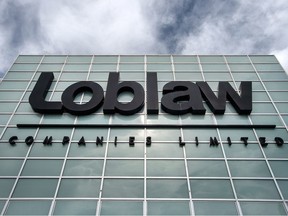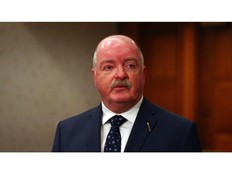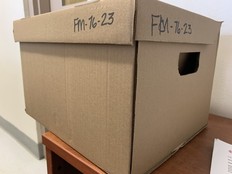Commentary: Loblaw’s commitment to end food waste in N.B.
According to Second Harvest, the largest food rescue organization in Canada, nearly 60 per cent of the food produced in Canada, or 35.5 million tonnes, is lost or wasted every year

Article content
No matter how you look at it, food waste is a waste.
For those of us in the grocery business, it’s more important now than ever to cut out food waste in our operations. These days there can be no excuse for letting good food go to waste, when too many in our communities do not have ready access to good, nutritious food. Food waste is also bad for the economy, when so many resources go into producing food that just ends up in landfill. And it’s bad for the environment. Did you know when food ends up in a landfill, it generates methane, a greenhouse gas contributing to climate change that is over 25 times more potent than carbon dioxide when it comes to trapping heat in the atmosphere?
That is why Loblaw is on a mission to end food waste in our stores and at all stages of the supply chain.
According to Second Harvest, the largest food rescue organization in Canada, nearly 60 per cent of the food produced in Canada, or 35.5 million tonnes, is lost or wasted every year, amounting to a $49 billion annual impact on our greater economy. Food waste comes from many sources – from loss at the farm and waste at the manufacturing plant, to unsold product in grocery stores and food not eaten by consumers at home. But regardless of the source, we can all agree any amount of waste is too much.
That’s why Atlantic Superstores across New Brunswick are working hard to ensure all the unsold food that leaves our locations ends up going to good use, instead of going to local landfills. In fact, the entire network of Loblaw grocery and drug stores across Canada, including Atlantic Superstore, Your Independent Grocer and No Frills stores here in our province, are committed to sending zero food waste to landfill by 2030. This has required a lot of change at all levels of our business, and we continue to work toward this goal.
First and foremost, we have strong relationships with individual food banks, and hold partnerships with Second Harvest and Food Depot Alimentaire in Moncton. Through these, we collect and redistribute still-good food from our stores to donate them to food banks and other organizations across the province, making sure unsold food that is still good to eat ends up going to those who need it most.
Second Harvest works with Loblaw stores in many parts of New Brunswick. In 2022, together with other partners in the province, they redistributed 2.4 million pounds of food, representing more than $6.9 million of unsold food going to those who need it. At the same time, these actions averted the creation of more than 8.2 million pounds of greenhouse gases in our province.
The fact we can help the environment and our economy at the same time as feeding hungry people is, obviously, a win for all of us.
Many of our stores across the province also work with Flashfood, an app that gives customers deep discounts on items like fresh produce and meats that are either overstocked or nearing their best-before date. Food is purchased via the app and customers pick it up at their local store to prevent it from being wasted.
But, what about food that is no longer okay for people to eat, like waste from our bakeries, produce departments, the dairy aisle or other areas of the stores? In this case, we’re reversing the food lifecycle – instead of “from farm to table,” we are taking food waste from the table back to the farm. Some of our stores work with nearby farms through an organization called Loop Resource Ltd., to support local farmers here in New Brunswick and across the country, turning food not fit for human consumption into food for animals and compost.
Every action makes an impact. Through partnerships like these, Loblaw stores are sending millions of kilograms of food waste to more than a thousand farms across the country.
And across Canada, Loblaw grocers are reducing food waste in even more ways, including working with innovative organizations like ZooShare Biogas Ltd., which is transforming nearly a thousand tonnes of animal manure and food waste from grocery stores, restaurants and other businesses into renewable power.
We can all play a role in preventing food from ending up in the landfill. Let’s put an end to the cycle of food waste at farms, grocery stores, and in our homes. Together, through our ongoing efforts and partnerships, we can all make sure that no waste goes to waste.
Lionel Duguay is a District Manager with Atlantic Superstore in New Brunswick












Postmedia is committed to maintaining a lively but civil forum for discussion. Please keep comments relevant and respectful. Comments may take up to an hour to appear on the site. You will receive an email if there is a reply to your comment, an update to a thread you follow or if a user you follow comments. Visit our Community Guidelines for more information.